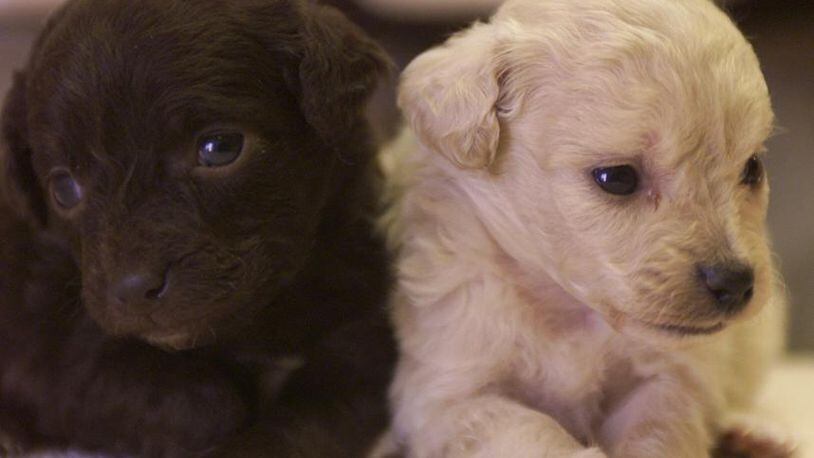“It’s our understanding the Legislature is working to clarify the intent of previous legislation,” Bruce said in an email Thursday. “In the meantime, our department will suspend the processing of pertinent applications, and no enforcement proceedings have been, or will be, initiated.”
RELATED: Ohio law strict on puppy mills, but enforcement of new standards questioned
Two laws passed in recent years appear to be causing some confusion -- a law passed in 2016 which governs dog sales and licensed pet stores and a more recent law, passed last summer, aimed at high-volume dog breeders.
The 2018 breeding reform was supposed to be aimed at breeders who sell 40 or more puppies a year to the public.
Some home or hobbyist dog breeders had expressed concerns that families would be treated essentially as “pet stores” or retail outlets under the law.
Ohio lawmakers last summer approved the high-volume breeding reforms, forbidding certain harsh conditions or practices, limiting the number of litters a female dog can produce in a lifetime to eight, forbidding the use of wire flooring — even plastic-coated wire flooring — where dogs are kept and forbidding the stacking of those cages.
The law calls for dogs in breeding operations to get exercise and socialization daily. They are supposed to get continuous access to water and meals at least twice a day, among a host of other requirements.
The bill requires pet retailers or dog brokers to get a signed document from suppliers attesting that they have complied with Ohio’s standards of care for these dogs.
But local small-volume breeders feared that they would have to buy $500 pet retail licenses or submit to unannounced state inspections under the reform.
John Goodwin, senior director of the “Stop Puppy Mills Campaign” for the Humane Society, said the $500 fee requirement was part of the 2016 law.
Germantown resident Kristi Speck said she heard about the law’s possible new implications “by accident” on Facebook. She said she strongly supports reforms and believes animal care should be strengthened.
But she believes a distinction should be made for responsible low-volume hobbyists.
“It is overreach in the extreme,” Speck said.
She welcomed the news Thursday that the department will pause enforcement for the time being.
“That’s great. We’re still going to push and watch what their (interpretation of the law) is going to be,” Speck said.
She hopes the state will exclude hobbyist breeders from rules designed to govern high-volume breeders.
“I guess we’ll just to wait and see,” Speck added. “I think we really rallied. It shows you what people can do if they push back.”
Katherine Caprez, a legislative aide to Ohio Rep. Kyle Koehler, R-Springfield, said Koehler is aware of the situation and spoke Thursday with Dorothy Pelanda, agriculture department director. Koehler is a member of the House Agriculture and Rural Development committee.
“Ohio Department of Agriculture Director Dorothy Pelanda has directed the department to suspend all applications for hobby breeders until the state legislature can fix the problem she inherited,” Koehler said in a statement. “I’ve said from the beginning: if someone in Ohio wants to sell a few of their family dog’s puppies, they shouldn’t have to get an expensive state license to do so. I fully agree with Dir. Pelanda’s action here and look forward to passing a legislative fix to this issue.
Director Pelanda has my full support.”
About the Author
